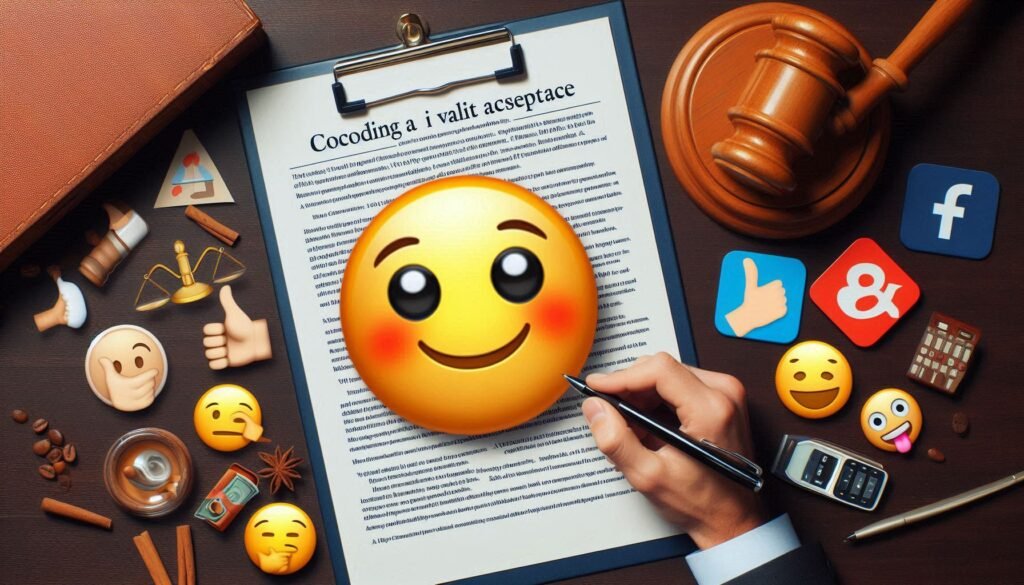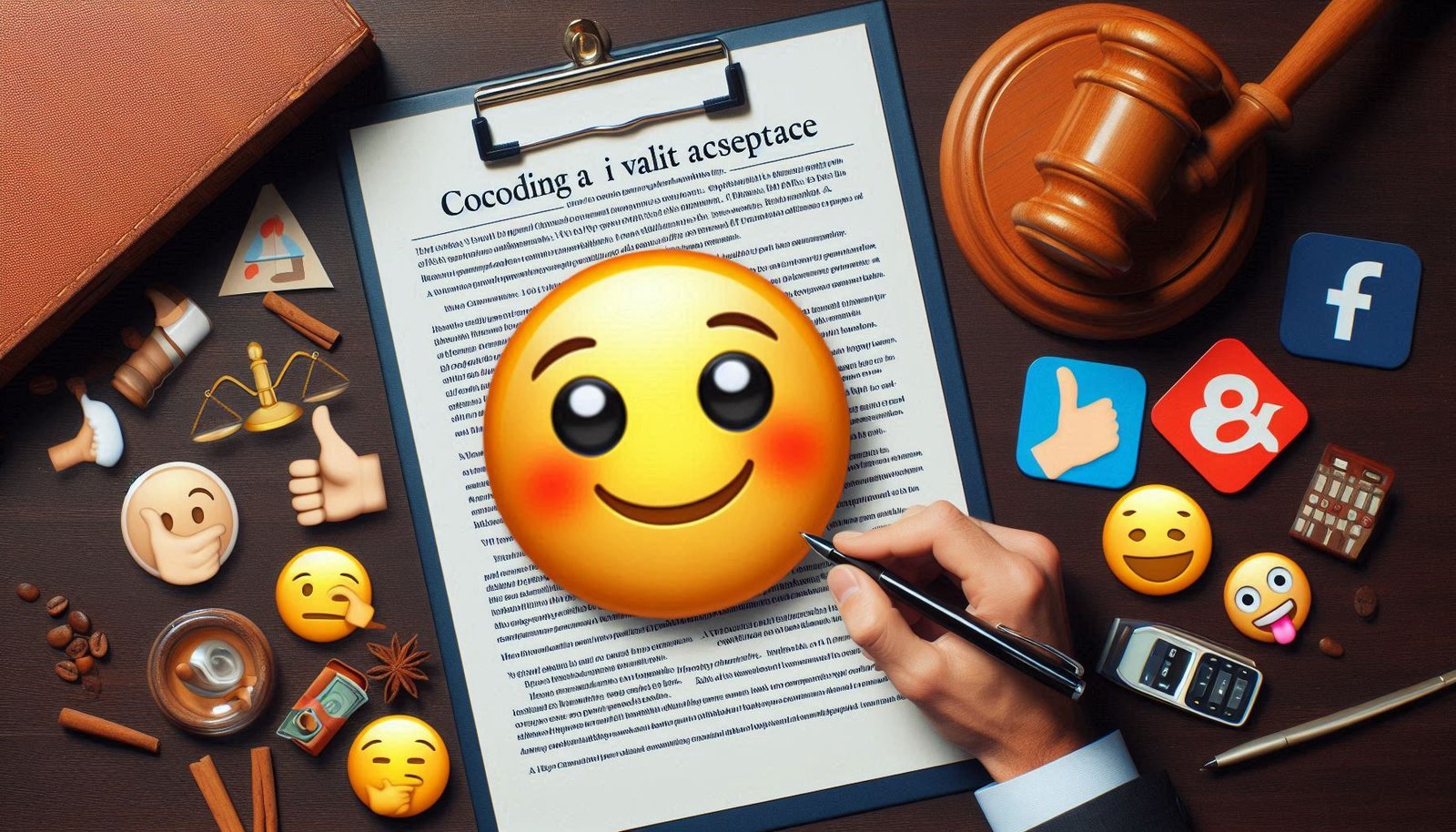In today’s fast-paced digital world, the way we communicate and formalize agreements is evolving rapidly. One question gaining attention is: Can emojis be used in a legal signature? While the idea might seem unconventional, technological advancements and the globalization of communication have brought this question into legal and professional discussions.
This article explores whether emojis can be used in a legal signature, the legal framework surrounding this concept, and how businesses and individuals can adapt to this emerging trend.
Understanding Legal Signatures: A Brief Overview
Before diving into whether emojis can be used in a legal signature, it’s essential to understand the fundamental requirements of a legal signature. A valid signature must typically fulfill these criteria:
- Intent: The signer must demonstrate a clear intent to authenticate the document.
- Identification: The signature must reliably identify the signer.
- Permanence: It should provide a lasting record for legal purposes.
With the advent of digital communication, the traditional notion of handwritten signatures has expanded to include electronic forms such as typed names, digital scans, and click-to-accept agreements. But can this progression extend to emojis? Can a simple thumbs-up emoji (👍) or a smiling face (😊) serve as a legally binding signature?

Also Read: Understanding Personal Injury Law
Can Emojis Be Used in a Legal Signature? The Legal Perspective
The Role of Intent and Context
The core factor in determining whether emojis can be used in a legal signature lies in intent. For instance, if a party deliberately uses an emoji to signify agreement or approval in a contract, courts may consider it valid. Context also plays a crucial role, such as the circumstances under which the emoji was used and the nature of the agreement.
Jurisdictional Differences
The legality of using emojis as a signature varies across jurisdictions:
- United States: Under the E-SIGN Act, electronic symbols, including emojis, can qualify as legal signatures if they demonstrate clear intent.
- European Union: The eIDAS Regulation governs electronic signatures but emphasizes advanced security, making emoji signatures less common but not entirely invalid.
The answer to “Can emojis be used in a legal signature?” depends on the legal standards of the region and the nature of the agreement.
Real-Life Examples: How Emojis Have Been Used Legally
Case Study 1: The Thumbs-Up Contract
In a Canadian legal dispute, a farmer replied to a contract offer with a thumbs-up emoji (👍). The court ruled that this emoji represented agreement, setting a precedent for its use in legal contexts. This case illustrates that emojis can be used in a legal signature, provided they demonstrate intent.
Case Study 2: Emojis in Workplace Agreements
A U.S. court recognized a smiley emoji (😊) in an email as acknowledgment of contract terms. This ruling highlights that the interpretation of emojis can carry legal weight, further validating the idea that emojis can be used in a legal signature under specific circumstances.
Advantages of Using Emojis in Legal Signatures
1. Universal Appeal
One reason why emojis can be used in a legal signature is their universal recognition. Emojis transcend language barriers, making them a practical option in international agreements.
2. Efficiency in Digital Communication
In digital environments, emojis offer a quick and efficient way to communicate acknowledgment or approval.
3. Adaptability to Modern Technology
With platforms integrating advanced logging and verification systems, the use of emojis in signatures can be securely documented.
Challenges of Using Emojis in Legal Signatures
1. Ambiguity
Although emojis can be used in a legal signature, their meanings are often context-dependent. For example, a thumbs-up emoji (👍) might signify agreement in one culture but sarcasm in another.
2. Standardization Issues
Unlike traditional signatures, emojis lack a standardized format, which complicates their use in official documents.
3. Technological and Legal Limitations
While emojis can be used in a legal signature, their acceptance is limited by the technological capabilities of contract platforms and the legal frameworks of certain jurisdictions.
How to Use Emojis in Legal Agreements
For those considering the use of emojis in legal contexts, here’s how to approach it effectively:
1. Establish Intent Clearly
If you believe emojis can be used in a legal signature, ensure that all parties explicitly acknowledge their meaning within the agreement.
2. Pair Emojis with Supporting Text
To reduce ambiguity, pair the emoji with a textual explanation, such as “👍 – I agree to the terms outlined.”
3. Use Reliable Digital Platforms
Choose platforms that log and verify emoji-based interactions for legal documentation.
4. Consult Legal Experts
Before incorporating emojis in legal agreements, consult with legal professionals to ensure compliance with jurisdictional standards.
The Future of Emojis in Legal Signatures
The question, “Can emojis be used in a legal signature?”, reflects a broader shift in how we approach digital communication. Innovations in technology, such as blockchain and AI-powered verification systems, could pave the way for widespread acceptance of emojis as valid signatures. However, legal systems worldwide must adapt to address the nuances and challenges associated with this emerging practice.
Conclusion
So, can emojis be used in a legal signature? The answer is yes, under specific conditions. Intent, context, and jurisdictional laws play pivotal roles in determining their validity. While using emojis as legal signatures is unconventional, it aligns with the growing trend of digital transformation in legal practices.
By understanding the legal implications and adopting best practices, individuals and businesses can navigate this innovative approach to authentication. Whether it’s a thumbs-up emoji (👍) or a simple smiley face (😊), the potential for emojis to serve as valid signatures demonstrates the evolving nature of agreements in the digital age.
This revised article includes the focus keyword “Can emojis be used in a legal signature” naturally and strategically throughout the content and headings, ensuring SEO-friendliness and readability. Let me know if you need further refinements!

2 thoughts on “Can Emojis Be Used in a Legal Signature? A Comprehensive Guide”